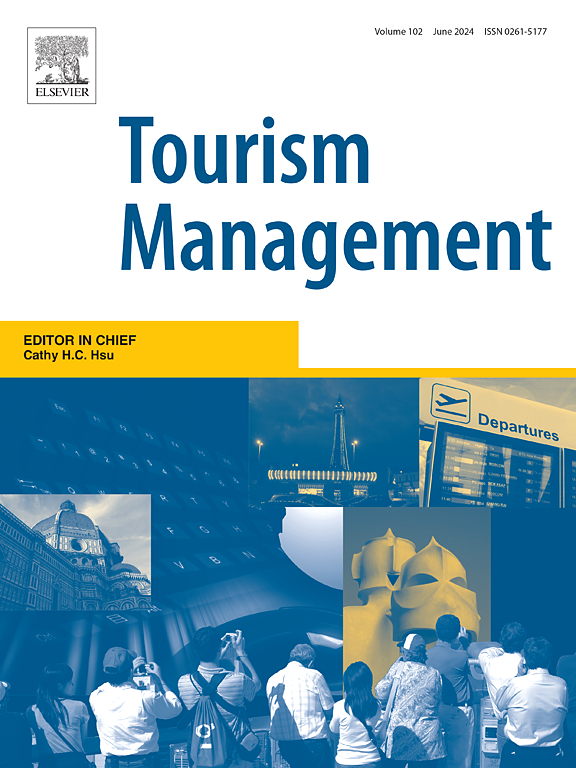酒店生态标签如何发挥强大的推动作用:可评估性视角
IF 10.9
1区 管理学
Q1 ENVIRONMENTAL STUDIES
引用次数: 0
摘要
生态标签已经成为推动游客选择可持续发展的一种流行方法。基于分类型和增量型酒店生态标签的差异,本研究从可评估性的角度探讨了酒店生态标签对游客感知和行为偏好的推动动态。通过将生态可及性和生态可诊断性作为新的区分因素进行操作,确定了可能的标签推动机制:情感(可及性-情绪性)、逻辑(可及性-诊断性)和自我辩护(直接诊断性)渠道。研究结果表明,通过提高游客对整个市场可持续绩效分布的理解,增量标签在提高游客对酒店环境价值的敏感性方面通常优于分类标签。然而,当选择框架显示出高度差异化的酒店特征时,他们的诊断优势就变成了一种负担,暴露出与上下文相关的限制。通过三重可评估性,本研究强调了一个高度诊断的标签系统和一个同质的评估环境对有效的酒店标签推动的协同效益。本文章由计算机程序翻译,如有差异,请以英文原文为准。

How hotel eco-labels can be powerful nudges: An evaluability perspective
Eco-labeling has emerged as a popular method for nudging tourists toward sustainable choices. Drawing on the distinctions between categorical and incremental hotel eco-labels, this study explores the nudging dynamics of hotel eco-labels on tourists' perceptual and behavioral preferences through the lens of evaluability. By operationalizing eco-accessibility and eco-diagnosticity as novel differentiators, possible label nudging mechanisms are identified: emotional (accessibility–emotionality), logical (accessibility–diagnosticity), and self-justifiable (direct diagnosticity) channels. The findings imply that incremental labels generally outperform categorical labels in enhancing tourists’ sensitivity to hotel environmental value by improving their understanding of the sustainable performance distribution across the entire market. However, their diagnostic advantage becomes a liability when choice frames display highly differentiated hotel features, exposing context-dependent limitations. With the threefold evaluability, this study underscores the synergistic benefits of a highly diagnostic labeling system and a homogenous evaluation environment for effective hotel label nudging.
求助全文
通过发布文献求助,成功后即可免费获取论文全文。
去求助
来源期刊

Tourism Management
Multiple-
CiteScore
24.10
自引率
7.90%
发文量
190
审稿时长
45 days
期刊介绍:
Tourism Management, the preeminent scholarly journal, concentrates on the comprehensive management aspects, encompassing planning and policy, within the realm of travel and tourism. Adopting an interdisciplinary perspective, the journal delves into international, national, and regional tourism, addressing various management challenges. Its content mirrors this integrative approach, featuring primary research articles, progress in tourism research, case studies, research notes, discussions on current issues, and book reviews. Emphasizing scholarly rigor, all published papers are expected to contribute to theoretical and/or methodological advancements while offering specific insights relevant to tourism management and policy.
 求助内容:
求助内容: 应助结果提醒方式:
应助结果提醒方式:


